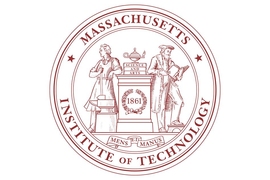Today, Vice President for Research Maria Zuber is releasing a report from a committee charged with engaging the MIT community on the issue of climate change. The report offers an expansive suite of ideas about how MIT can most productively contribute to solving the problem.
In releasing the report, Zuber is inviting comments on it via email (to climateconversation@mit.edu) from the MIT community over the next 30 days: This further input will help inform recommendations that will be presented to MIT President L. Rafael Reif this summer.
Today’s report caps a year’s work. In May 2014, Reif announced that he was asking Susan Solomon, the Ellen Swallow Richards Professor in the Department of Earth, Atmospheric and Planetary Sciences — named that day as the founding director of an Institute-wide environmental initiative — to work with Zuber, Provost Martin Schmidt, and MIT Energy Initiative Director Robert Armstrong (together with Solomon, the “Conversation Leadership”) to launch a campus-wide conversation on the challenge of climate change.
Toward that end, in September, Zuber announced the establishment of the MIT Climate Change Conversation Committee, which was charged with seeking broad input from the Institute community on how the U.S. and the world can most effectively address global climate change. That committee, which reported to the Conversation Leadership, was established with input from the members of the group Fossil Free MIT and the MIT Office of Sustainability.
The committee was asked to work with the MIT community to explore pathways to effective climate mitigation, including how the MIT community — through education, research, and campus engagement — might constructively move the global and national agendas forward. The committee was assigned to produce a final report to be delivered to the Conversation Leadership. The report was to list, in unranked order, key suggestions with associated pros and cons that encompassed the range of views of the community.
The Conversation Leadership will carefully review the report, as well as any further input from members of the MIT community, before presenting recommendations to Reif. In the fall, Reif will announce a plan for community-wide MIT action on climate change.
Since its establishment, the committee has engaged the MIT community in a number of ways. From January to May of this year, five events were held, including a lecture about the urgency of climate change by MIT alumnus (and former White House advisor and Goldman Sachs partner) Larry Linden; a panel discussion about the difficulties around communicating with the public about climate change; and a debate about the call for MIT to divest from fossil fuels. In April and May, a listening tour comprising six sessions in locations across campus was conducted. And since November, the committee has hosted an idea bank devoted to climate change, which has seen participation from nearly 600 members of the MIT community, including students, faculty, and alumni.
In an email to the community today, Zuber thanked the committee for its work. “By tackling this important assignment with energy, imagination and seriousness, [the committee members] delivered to our community an exceptionally constructive and illuminating process for exploring the most effective strategies for climate action,” Zuber said. “In the best MIT tradition of clear-eyed problem-solving, their thoughtful groundwork enabled the MIT community to address this urgent, complex and highly charged subject in a way that left us all better informed and better prepared to act.”











